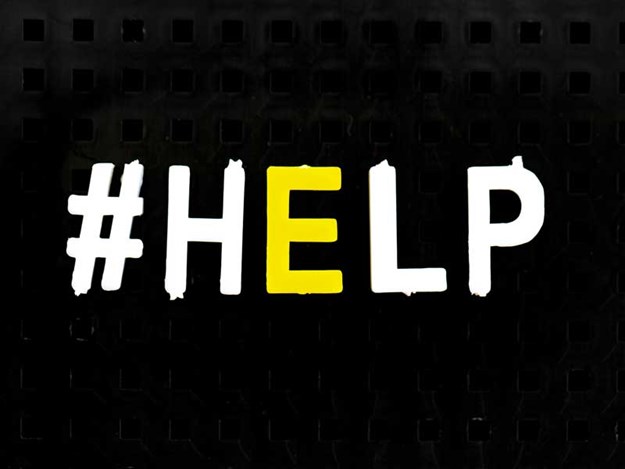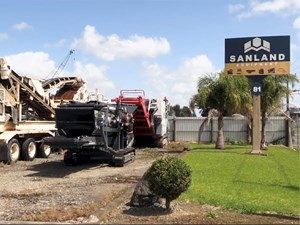Comment: Addressing the elephant in the room - understanding suicide
Suicide is an issue that, unfortunately, not many like to talk about, especially in the trucking industry
In 2018, 685 people committed suicide in New Zealand; 466 men and 219 women who are no longer with us.
Of this total, Maori suicides were a disproportionate 169 deaths and Pacific Island suicides were 34 deaths. To put this in perspective, the total 2018 Road Toll in NZ was 377 people.

Although no accurate statistics are available for the trucking industry, the construction industry reports that between 2007 and 2017, suicide was a factor in 300 deaths over 10 years.
Suicide by truck is a factor; again, no statistics are available in New Zealand, but reports from Australia indicate that 21% of multivehicle fatal incidents involving a heavy truck were indicated as suicides.
Also, reports from Europe and North America indicate that 17% of fatal incidents involving a heavy truck were suicide by truck. Government reports indicate that around 15,000 people go to emergency departments each year experiencing a mental health crisis or are at risk of suicide.
Suicide is an issue we all need to talk about, so that more people can understand the contributing factors that cause people to take their own life. This is an issue that affects everybody. When a person chooses to take their own life, the effect is devastating on their family, friends, work colleagues, and others.
One of the factors contributing to suicide is depression. Statistics show that one in every six people suffer from serious depression at some stage in their life. Depression is a sickness that many in the trucking industry experience at some point in their life.
Depression, stress, and anxiety are common in our industry, especially for drivers who are often away from home for long periods at a time and with no one to talk their problems over with.
Drivers have to deal with a range of issues daily, including traffic, adverse road conditions, poor behaviour from other road users, weather, worktime and delivery pressures, breakdowns, complex regulations, and often get insufficient sleep in the back of the cab combined with poor food options and cumulative fatigue.
People can suffer depression in different ways, but there are a number of common signs and symptoms that need to be looked out for including:
- Unusual sleep patterns, including insomnia (can’t sleep) or hypersomnia (oversleeping)
- Lack of energy, always feeling tired, even small tasks seem to take a major effort
- Significant changes to appetite or weight, especially over short periods
- Feelings of helplessness or hopelessness; nothing seems to get better, and you feel there’s nothing you can do about it
- Can’t concentrate on anything; you find it difficult to make a decision, and you struggle to remember things. Personality changes.
- Unexplained physical problems, including back pain, headaches, aching muscles, and stomach pain
- Angry or irritable behaviour. Feeling agitated, restless, and violent. You have a short temper, and everyone and everything winds you up.
- Lost interest or pleasure in normal daily activities. No interest in social activities or recreational activities. Not wanting to try doing new things.
- Feelings of guilt or worthlessness. Blaming yourself for past failures or things that were beyond your control.
- Reckless behaviour, including substance abuse, increased consumption of alcohol, compulsive gambling, dangerous driving, and dangerous sports.
- For some people, the symptoms of depression are so severe, that it’s obvious that something isn’t right.
Depression can be a trigger for suicide. For some people, their depression can be so severe that suicide can seem the only way to escape the despair and hopelessness they feel.
Warning signs to watch out for include:
- Reckless behaviour, as if the person has a death wish
- Discussing strong feelings of hopelessness and despair
- Discussing suicide or self-harm
- Making statements like "I would be better off dead" or "Nobody is going to miss me"
- A preoccupation with death or dying
- A preoccupation with getting their affairs in order. Visiting and saying goodbye to friends and family.
- A sudden change in personality, from being depressed to overly happy
- Some people don’t show any warning signs, so keep in regular contact with your friends and family to make sure that they are OK.
Depression is not like some medical conditions that can be easily fixed with antibiotics or surgery, but can be influenced by lifestyle choices, relationships, and your ability to cope in stressful situations.
There are certain risk factors that can make you more susceptible to depression and can include:
- Financial pressure and strain can trigger depression
- Certain medications can increase your risk of depression
- Social, relationship, or marital problems
- Unemployment can be a factor
- Serious health issues can sometimes cause depression
- Chronic fatigue
- Past physical, emotional or sexual abuse can cause depression in later life
- Alcohol or substance abuse. Nearly 30% of people with substance abuse problems also suffer from depression.
- Family history of depression
- Loneliness, no friends or family
- Major events, including marriage, divorce, or a new job can trigger depression
- Personal conflict or disputes
- Death or loss of a loved one can increase the risk of depression
Getting help
If you or someone you know is suffering from depression or is suicidal, then getting help early is important. The best approach is a combination of emotional support, good whanau and family relationships, community and cultural support, lifestyle changes, learning skills to help handle conflict, and professional help.
Find someone you can talk to about your depression, someone who is a good listener and not judgemental. Look at some healthy lifestyle changes, such as healthy eating, regular exercise, practising relaxation techniques, developing supportive relationships, regular sleep, and learning how to manage stress. Other factors that help include access to secure housing and stable employment.
Make an appointment with your doctor or local medical practitioner to discuss your depression, or you can contact one of the following organisations:
Lifeline (open 24/7) 0800 543 354
Depression Helpline (open 24/7) 0800 111 757
Healthline (open 24/7) 0800 611 116
Suicide Crisis Helpline (open 24/7) 0508 828 865
Alcohol Drug Helpline (open 24/7) 0800 787 797
Anxiety NZ (open 24/7) 0800 269 4389
Youthline 0800 376 633
Supporting Families in Mental Illness Northern 0800 732 825
Central 0800 555 434
South Island 0800 876 682
Keep up to date in the industry by signing up to Deals on Wheels' free newsletter or liking us on Facebook.




.jpg)


.jpg)









